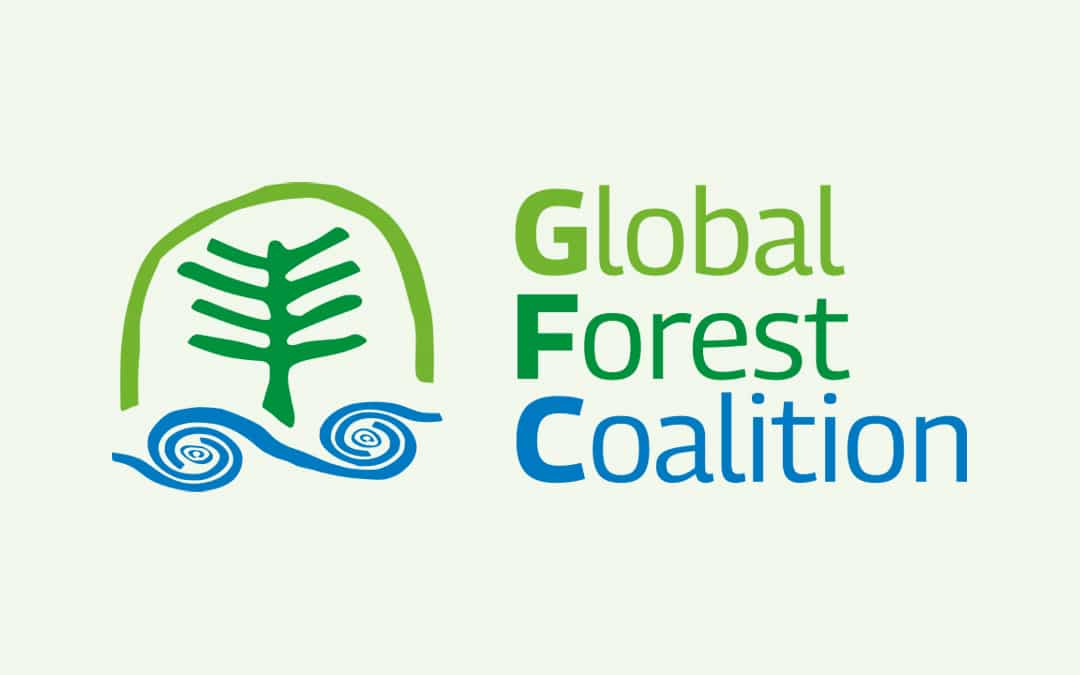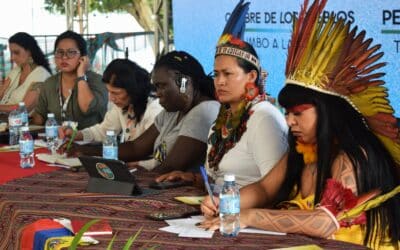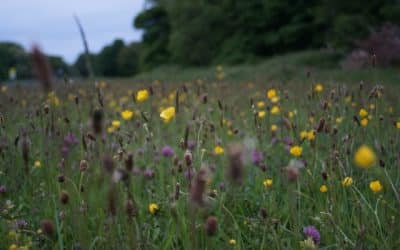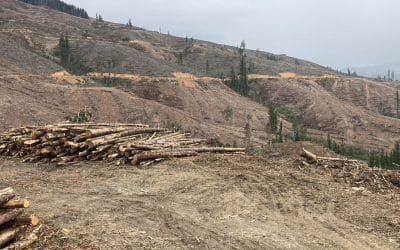Kalpavriksh – Hyderabad, 16.10.2012
The Indian Prime Minister’s address to the High Level Segment of CBD COP11 today, is a classic case of doublespeak. Listening to his assertions regarding India’s commitment to conservation and livelihoods, one would think the country is in the right hands. Nothing can be farther from the truth. If the PM is serious about what he said, he needs to make fundamental changes to the government’s economic policies and governance structures.
For example:
What the PM said: “We believe that the treasure trove of traditional knowledge should be used for the benefit of all humankind rather than for private profit. We will continue to work to strengthen our institutions to record this knowledge, to value its science and to provide benefits to its custodians.”
What the government does: Displaces and dispossesses forest-dwelling adivasis, fishers on our coasts, pastoralists, and other holders of traditional knowledge, by taking away their lands and resources for corporate profit, thereby destroying the basis of traditional knowledge.
What the government also does: Drags its feet in amending the Biological Diversity Act to empower communities in protecting their natural resources and traditional practices, and fails to implement the provision of the Act that mandates protection of such knowledge. The Traditional Knowledge Digital Library that the PM mentioned with pride, is a poor substitute for living, evolving knowledge that only local communities possess.
What the PM said: “We have legislated a Forest Rights Act that lends legal sanctity to the rights of forest dwellers, who are often the best friends of the biodiversity that resides in these magnificent forests.”
What the government does: Dithers in implementing the Forest Rights Act, with thousands of community rights claims pending across the country; worse, continues to violate the FRA by clearing projects for forest land diversion for mining, dams, etc, without first recognizing forest-dwellers rights and without seeking gram sabha consent.
What the government also does: Displaces forest-dwellers from tiger reserves in complete violation of the FRA.
What the PM said: “We will have to adopt similarly innovative approaches to deal with the issue of protecting fishermen’s livelihoods.”
What the government does: Clears hundreds of power projects, ports, chemical industries, tourism complexes, and other projects which are destroying coastal and marine biodiversity, and the livelihoods of fisher communities.
What the government also does: Shelves a proposal for a fishing community rights legislation made in 2010 by the Minister for Environment and Forests.
What the PM said: “we need to build a movement to conserve traditional varieties of crops.”
What the government does: Continue to push a model of agriculture based on large-scale monoculture, chemicals, and dependence of farmers on corporations, including through clearing genetically modified seeds like Bt Cotton.
This and other cases of hypocrisy and doublespeak are characteristic of India’s decision-makers, and will remain so till the blind pursuit of economic growth ‘at all costs’ is changed to ecologically sustainable and socially equitable models of human well-being. Thousands of communities across India are demonstrating that such models are practical and achievable. Yet even the Hyderabad Pledge that he has generously announced is aimed at strengthening “national and state-level mechanisms” … not for promoting decentralised, community based approaches.
Nevertheless, civil society and community organization groups will demand that the Prime Minister stands by his commitments in today’s address, towards stronger rights for fisher communities, conservation of traditional seeds, promotion of new models of conservation, and other steps necessary to implement India’s commitments under the CBD.
(Ashish Kothari)
on behalf of Kalpavriksh
Please note that this note is issued as complementary to the press release issued by several civil society and community organizations earlier today. This is appended below.
India’s Economic Policies are Destroying Biodiversity and Livelihoods;
Commitments Under CBD are Not Being Met
Statement issued by Indian civil society and community-based organizations participating in CBD COP11, Hyderabad
16 October 2012
India’s economic policies are destroying biodiversity and livelihoods on an unprecedented scale. The blind pursuit of economic growth is coming at massive costs, both to natural ecosystems and to hundreds of millions of ecosystem-dependent people, who are being affected by mining, dams, power plants, ports, industries, and other such projects. Such growth has also not solved the chronic problems of poverty, hunger and malnourishment, and social exclusion that affect more than half of India’s population.
Statements by India’s political leaders and bureaucrats at the CBD COP11 in Hyderabad, assuring steps to conserve India’s biodiversity and the rights of its people, appear to be doublespeak. A fundamental change in course needed if India is to actually achieve these objectives. This includes respecting the knowledge and rights of local communities, ensuring decentralized decision-making of development and conservation activities, reorienting economic policies to put biodiversity and people’s livelihoods at the core, strengthening conservation measures against damaging activities, and strictly complying with laws that guarantee community rights to natural resources while planning development projects.
1. India’s growth fetish is leading to a massive attack on biodiversity and people’s rights and livelihoods. Policies of rapid industrialization and urbanization have caused damage to millions of hectares of forests, wetlands, rivers, mountains, coasts, marine areas, and grasslands, and to the lives, cultures, and livelihoods of tens of millions of people depending on such ecosystems. This attack has only intensified in the last two decades of ‘globalisation’, which was initiated in 1991 by the current Prime Minister Dr. Manmohan Singh when he was Finance Minister under the then PM Narasimha Rao.
2. Examples of the impacts of the economic growth model include the following:
- Several hundred projects, including nearly 100 thermal and nuclear power plants, over 200 ports, and dozens of petrochemical and petroleum investment regions (PCPIRs), mines, tourism facilities, and sand mining are being carried out or proposed along India’s coast. There will be hardly any part of the coast left untouched, and will marginalize hundreds of coastal communities, if all these plans fructify.
- Hundreds of mega dams have been planned across the country; as has happened with previous projects, these will obstruct the free flow of water, divert courses and change the riverine ecology and migration of fish species. The reduced flow of freshwater into the sea will also enhance coastal erosion, which is already affecting more than 25% of India’s coast.
- Since 1980, over 1.5 lakh hectares of forest land have been diverted for mining; 50% of this has been in the last 10 years. About 15% of India’s total landmass is under mining reconnaissance.
- Mining generates 2 billion tonnes of toxic waste every year; electronic waste totals 800,000 tonnes annually.
- High-input, monocultural agricultural development has displaced thousands of varieties of crops and breeds of livestock; genetically modified organisms (GMOs) are taking this damage further, and some of India’s most valuable agricultural biodiversity areas are threatened.
3. All of the above has been facilitated by a systematic weakening of the environmental governance framework. For instance:
- Notifications under the Environment Protection Act, such as the Coastal Regulation Zone notification and the Environment Impact Assessment notification, have been repeatedly amended (and violated) to allow more and bigger industrial projects in ecologically sensitive areas;
- There is no credible mechanism in place to ensure that such projects comply with the conditions under which they are cleared; and there is no assessment of the social and cultural impacts of projects, or of the cumulative impacts of several projects in one region;
- The Forest Conservation Act has become a Forest Clearance Act, to divert lakhs of hectares of forest for mining, industries and other such projects;
- Statutory public disclosure of important information pertaining to projects is often not taking place, despite orders of the Chief Information Commissioner, court rulings and repeated demands by community and civil society groups; this includes Environmental Clearance letters, Forest Clearance letters, etc.
- The Biological Diversity Act has been mostly reduced to a law granting access to the country’s biological resources and related knowledge, without empowering communities to safeguard these.
- Further necessary laws and policies, such as those dealing with the rights of coastal communities, are being blocked or delayed.
4. In this context the recent proposal of the Finance Minister to mandate the National Investment Board to over-ride Union Ministries to clear development projects, is alarming and highly objectionable. It is not surprising that this atrocious proposal has been opposed by his own colleagues.
5. Even laws and guidelines that mandate environmental and livelihood safeguards are consistently violated. For instance, the July 2009 circular of the Ministry of Environment and Forests (MoEF) to all state governments, requiring that they finish the Forest Rights Act implementation process and seek gram sabha consent for all proposals on diversion of forest land for non-forest purposes, has almost never been implemented. Though the Ministry of Tribal Affairs has recently reiterated this requirement, there is little evidence that MoEF is itself implementing it while giving forest clearance. Laws like the Panchayat (Extension to Scheduled Areas) Act 1996, and the Forest Rights Act 2006, are repeatedly being violated.
6. Given this situation, we demand the following:
i. A moratorium on megaprojects and processes (including mining, megadams and power projects, GMOs, ports and others) that threaten or undermine fragile ecosystems and livelihoods based on them, until the following actions are undertaken.
ii. A comprehensive and participatory review of economic policies and planning processes, to put biodiversity conservation, and peoples’ livelihoods based on biodiversity, as core values. This means a central focus on sustainable livelihoods based on responsible use of forests, rivers, marine and coastal areas, grasslands, farms, and other ecosystems.
iii. Genuine decentralization of political, financial, and economic governance to gram sabhas and urban ward or area sabhas, empowering communities and citizens to participate in decision-making processes based on the best available knowledge.
iv. Strict compliance of legislations such as FRA and PESA which provide some safeguards for the rights of vulnerable communities and require free prior informed consent of gram sabhas or other relevant community institutions.
7. India can move to very different paradigms of human well-being, centred on cultural diversity, educational, health, livelihood and social security, and environmental sustainability as core values. Thousands of initiatives of this kind already exist in India, a tiny portion of which were displayed at the People’s Biodiversity Festival held parallel to the COP in Hyderabad.
8. Nothing short of the above will ensure that India adheres to both its own Constitutional commitment to enhance the well-being of all its citizens and protect its environment, as also its commitments under international agreements such as the CBD and the Millennium Development Goals.
Statement issued by:
Kalpavriksh
Bombay Natural History Society
Bharat Jan Vigyan Jatha
Deccan Development Society
Greenpeace India
National Alliance of Peoples’ Movements
National Fishworkers Forum
South Asia Network on Dams, Rivers and People
Vasundhara
All India Forum of Forest Movements
Delhi Forum
Indian Biodiversity Forum
International Collective in Support of Fishworkers Trust
Plachimada Solidarity Committee
Programme for Social Action
Awaaz Foundation
Franciscans International
Green Circle Sikkim
PondyCAN
Natural Health Promoting Association
Climate Leaders India Network
Indian Youth Biodiversity Network
Campaign for Conservation and Community Control over Biodiversity
National Centre for Advocacy Studies
National Coastal Protection Campaign
Contact: ashishkothari@vsnl.com, 09652278054 (at CBD COP)




